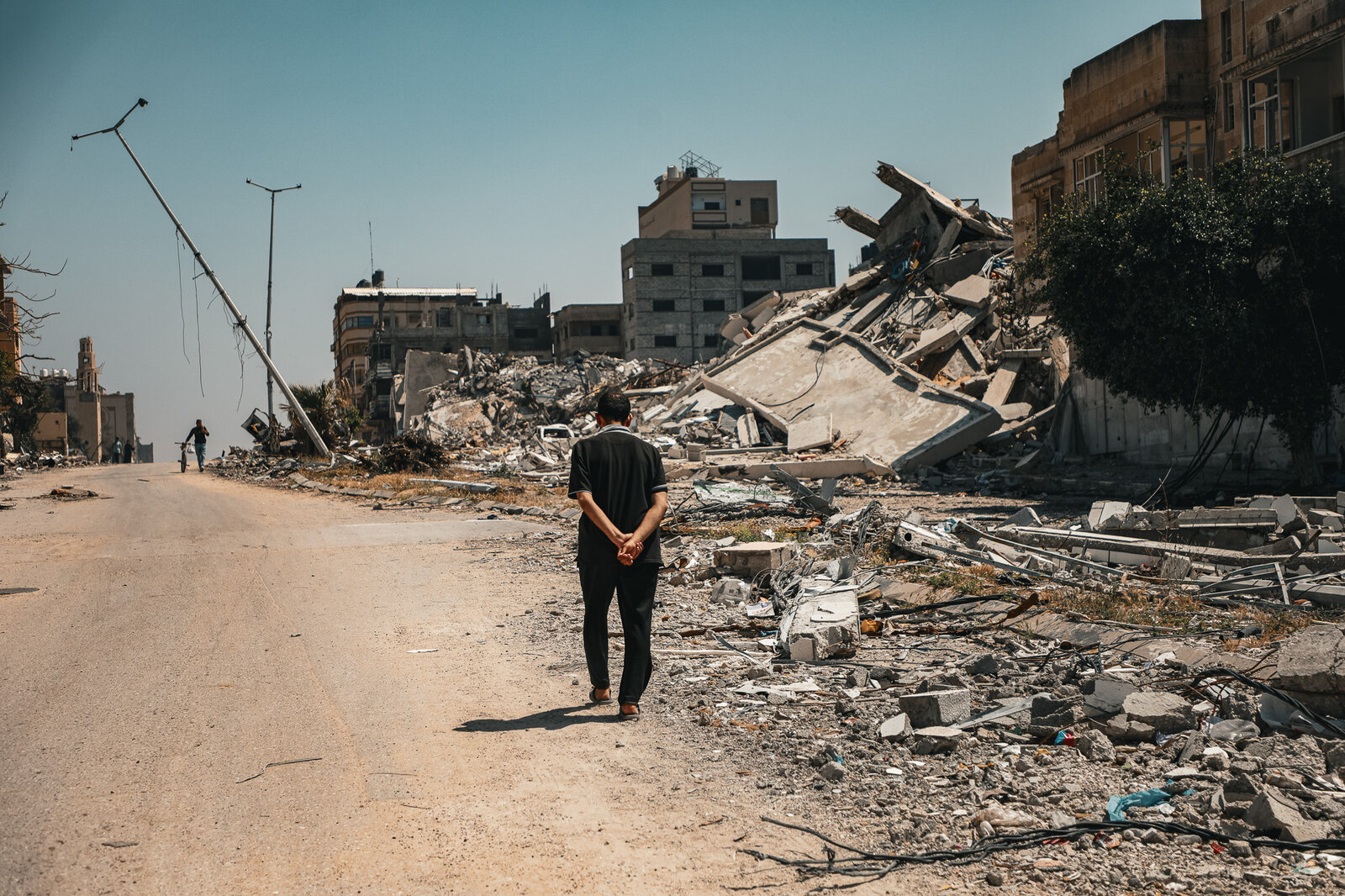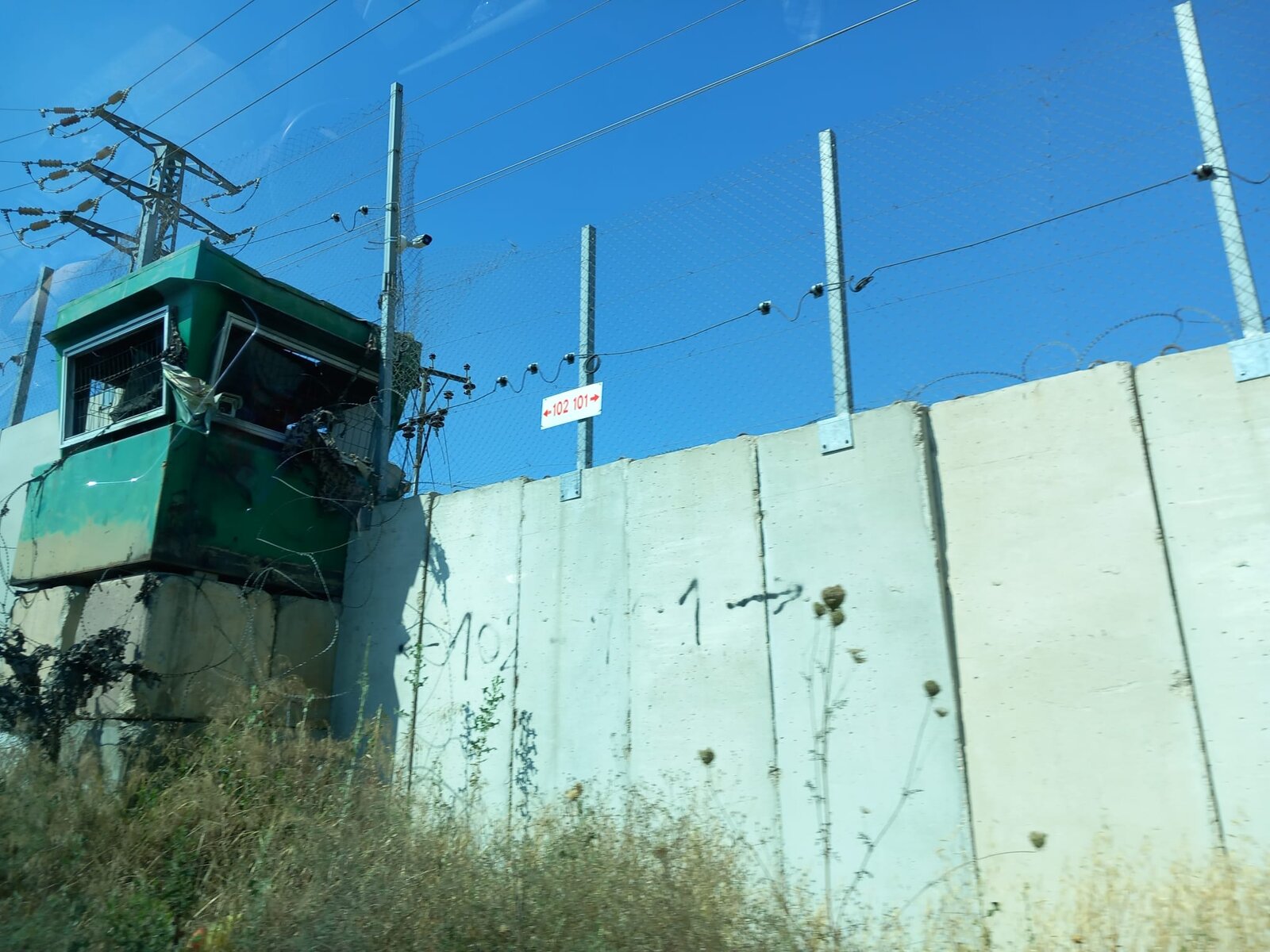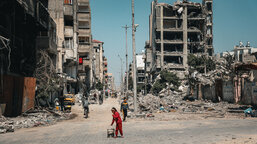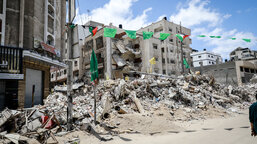Genocide is one of the most serious crimes under international law. It refers to deliberate acts intended to destroy, in whole or in part, a national, ethnic, racial, or religious group. Genocide does not only mean mass killings; it also includes causing serious bodily or mental harm, creating living conditions intended to destroy the group, and preventing access to humanitarian aid, food, water, or medical care. What is currently happening in Gaza meets these criteria. The notion that a nation that has itself been a victim of genocide cannot commit such acts against others is false.
I WANT TO HELP PEOPLE IN GAZA
1. Israel is applying collective punishment in Gaza
One of the defining features of the current conflict in Gaza is the use of collective punishment. Israeli military operations are claimed to target Hamas, yet they primarily affect the civilian population – including children, women, the elderly, and patients. More than 56,000 people in Gaza have been killed, the vast majority of them civilians, including over 17,000 children. Over 130,000 have been injured. According to numerous human rights organizations and international law experts, such actions violate the principle of distinction between civilian and military targets and constitute genocidal conduct.
The current war is an escalation of a decades-long conflict that began with the establishment of the state of Israel on originally Palestinian land and the subsequent forced displacement of Palestinians. The latest escalation began on 7th October with a brutal Hamas attack on Israel that killed approximately 1,200 people and took more than 200 hostages into Gaza.
2. Civil infrastructure in Gaza is being systematically destroyed
About 1.9 million people – roughly 90% of Gaza’s population – have been forced to flee their homes due to ongoing military attacks. Half of them are children. There is no safe place in Gaza, and people are moving repeatedly in a desperate attempt to escape certain death.
This is accompanied by the systematic destruction of civil infrastructure. Israel has extensively targeted schools, hospitals, water stations, power plants, and residential buildings. According to the latest data, 92% of homes have been destroyed or damaged, and virtually no hospitals remain fully functional. 90% of households lack access to clean drinking water, and only 10% of water and sanitation facilities are operational. Life under such conditions is impossible, and meets the definition of genocide by exposing a population to conditions that lead to its physical destruction.
3. Israel is using starvation as a weapon of war
The already catastrophic situation in Gaza is exacerbated by the fact that almost no food is entering the territory. Israel is blocking the vast majority of humanitarian aid and repeatedly shelling supply convoys and distribution points. In recent weeks, more than 500 people have been killed and thousands injured while attempting to access humanitarian aid. These are not isolated incidents but part of a pattern that systematically prevents the civilian population from surviving.
There is a critical risk of famine in Gaza. The entire population is suffering from severe food insecurity, and 300,000 people are experiencing catastrophic hunger. Access to drinking water is virtually nonexistent. Hundreds of thousands of children are malnourished, and some have already died from hunger. Although food supplies and aid are ready at the borders, Israeli security checks and blockades prevent them from entering Gaza. This lack of access continues to claim innocent lives.
4. Gaza is under total Israeli blockade. People cannot leave, desperately needed aid cannot enter
The blockade of Gaza significantly worsens the situation. Israel controls the movement of goods, people, fuel, and aid, and has sealed the borders to almost everyone. People cannot flee to safety, not all children in critical condition can be evacuated for treatment, and even severely injured civilians remain trapped with no way out. International law experts consider such a blockade a form of collective punishment and a tool that may amount to genocide.
Israel has imposed a land, air, and sea blockade on Gaza since 2007, when Hamas seized control from the Palestinian Authority. After 7th October, the blockade intensified: Israel shut down all border crossings and drastically limited the entry of aid into the territory.
5. Thousands of journalists, humanitarians and medical personnel have been killed in targeted attacks
Adding to the tragedy are the attacks on those trying to help. Since October 2023, the UN has recorded more than 400 attacks on medical personnel, facilities, and ambulances. Over 2,000 aid workers, medics (1,580), and journalists (225) have been killed. Gaza is now one of the most dangerous places in the world for these professions. Israeli attacks have also put the vast majority of medical facilities out of service, and those still functioning are operating under extremely limited and catastrophic conditions. There is a lack of space, medication, staff, medical supplies, equipment, fuel for generators, and even food for patients. Hospitals are also under constant threat of attack. Intentional attacks on humanitarian workers, medical staff, and journalists are serious violations of international humanitarian law.
6. Israeli officials have repeatedly called for the destruction of Gaza
In recent months, Israeli officials and members of the ruling coalition have repeatedly expressed dehumanising views of Palestinians and calls for the total eradication of Gaza. The Israeli Minister for Heritage, Amichai Eliyahu, declared that “Hiroshima and Nagasaki were possible solutions” for Gaza. Likud party (which Benjamin Netanyahu is also a member) MP Nissim Vaturi called for “ethnic cleansing.” Other statements referred to Palestinians as “human animals,” “not human beings,” and “genetically defective.” These comments are not limited to fringe figures but come from senior government officials and ministers. They contribute to a discourse that legitimises violence and helps create a genocidal environment. Gaza is not an exception. It is the outcome of a system of oppression entrenched across all of Palestine.
7. It is not just Gaza. International law is systematically violated also in the West Bank
Lastly, it is essential to understand the broader context of Israel’s ongoing violations of international law, including the occupation of the West Bank, large-scale demolitions of homes, settler violence, and the denial of access to humanitarian workers. While the world focuses on Gaza, a different form of violence unfolds in the West Bank – quieter but equally devastating. Israel has been maintaining a decades-long system of control that severely restricts the daily lives of Palestinians. Hundreds of military checkpoints and roadblocks prevent free movement. Many residents cannot travel freely to work, government offices, schools, or medical care. A short trip can take hours, or be completely impossible. An estimated 40,000 Palestinians have been forcibly displaced from the West Bank in recent months, the highest rate since the Six-Day War in 1967.
Meanwhile, Palestinians in the West Bank face growing violence from Israeli settlers, who are establishing and expanding illegal settlements. Under army protection, settlers attack civilians, set fire to crops, destroy wells, and seize land and homes. These assaults are almost always met with impunity. While Israelis enjoy full protection and freedom of movement, Palestinians live under constant threat of violence, arrest, and displacement. Demolitions of homes due to "missing permits" – which are nearly impossible to obtain – are routine. Families lose homes, schools, makeshift clinics, even entire villages to bulldozers. The International Court of Justice has declared Israel’s occupation of the West Bank illegal and called for an end to settlement expansion.
Humanitarian organizations, including Caritas Jerusalem, report that the situation in the West Bank has deteriorated sharply since the war in Gaza began. The number of attacks, arrests, and forced evictions has risen dramatically. Many Palestinians have lost their livelihoods; farming is often impossible due to blockades and bans on accessing fields. Many live in constant fear that they will be next to lose their homes. While Gaza is under bombs, the West Bank is suffocated by oppression. That’s why the situation in Gaza must not be viewed in isolation. It is part of a wider system that for decades has violated basic human rights and forced people to live under occupation and the looming threat of losing their land, homes, and lives.
Caritas calls once again for an immediate and permanent ceasefire, massive delivery of humanitarian aid, the release of hostages, and respect for international law. Each of us bears responsibility not to remain silent in the face of this injustice. Let us demand clear action from political leaders, support humanitarian efforts, and refuse to look away. Remaining silent in the face of such suffering is to abandon the values on which international law and human dignity are based.
















